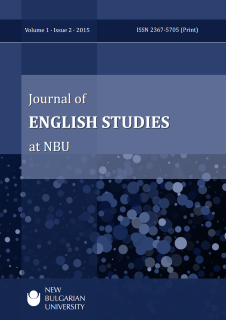Teachers' perceptions of the differences in the reading profiles of students with dyslexia and the role of dyslexia assessment for an appropriate choice of teaching strategy
Teachers' perceptions of the differences in the reading profiles of students with dyslexia and the role of dyslexia assessment for an appropriate choice of teaching strategy
Author(s): Blagovesta Troeva-ChalakovaSubject(s): Language studies, Language and Literature Studies, Foreign languages learning
Published by: Нов български университет
Keywords: dyslexia; reading skills; differences; diagnosis; teaching;
Summary/Abstract: The paper discusses how literacy teachers approach the differences in the reading profiles of their students with dyslexia, and the value of an available diagnosis of dyslexia in their choosing the most appropriate teaching methods. The research was carried out in the Greater London area in 2014. It involved interviews with six practitioners directly involved in teaching reading skills to pupils with dyslexia in various capacities. All of the participants demonstrated awareness of the wide range of difficulties on the dyslexia spectrum. This underlay their commitment to personalized teaching based on a detailed assessment of the pupils' weaknesses and strengths. Provided that such an assessment and special educational expert's recommendations for teaching were available to inform their approach, five out of the six interviewees, who were working only at a school level, did not find the availability of a diagnosis of dyslexia necessary. However, the participant with the most extensive expertise, occupying a leadership role in a borough's literacy support centre, strongly defended and insisted on the existence and the instructional necessity of the dyslexia category. The overall conclusion is that applying the most appropriate teaching strategies would depend on the availability of a detailed assessment, which poses the question how teachers who have no access to such information will be able to adjust their instruction to the needs of the particular student.
Journal: English Studies at NBU
- Issue Year: I/2015
- Issue No: 2
- Page Range: 27-40
- Page Count: 14
- Language: English

